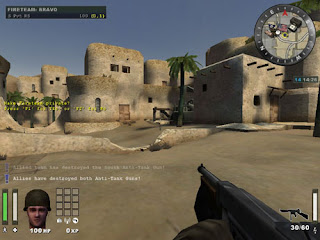Welcome to my personal Ubuntu 23.04 setup guide.
In this guide, I will share the GNOME extensions that I personally find useful, along with some minor tweaks that enhance my Ubuntu experience.
My list of GNOME extensions
One of the benefits of using the GNOME shell as the default graphical shell on Ubuntu is that we now have the ability to use GNOME extensions, which can modify the behaviour of the GNOME shell. However, it is important to be aware that these extensions are not developed by the official GNOME team but by third-party developers. From my own experience, using such extensions can sometimes lead to an unbootable system. Nevertheless, I have found a list of extensions that are compatible with the latest version of GNOME shell and they are quite useful.
But first, if you want to get GNOME extensions, then you have to install the following:
andBut first, if you want to get GNOME extensions, then you have to install the following:
sudo apt install gnome-shell-extensions
sudo apt install chrome-gnome-shellNow you are ready to install my recommended list of extensions:
- SomaFM internet radio
- This small extension adds a SomaFM internet radio player to the top panel of the Ubuntu desktop and it includes the ability to select favorites.
- To install, first open the terminal an denter the following command to install the required packages:
sudo apt install python3-gi gstreamer1.0-tools gir1.2-gstreamer-1.0 gir1.2-gst-plugins-base-1.0 gstreamer1.0-plugins-good gstreamer1.0-plugins-ugly gstreamer1.0-plugins-bad gstreamer1.0-libav gstreamer1.0-fdkaac git
- Then use these commands:
git clone 'http://github.com/alireza6677/somafm-radio-gnome-ext' cd somafm-radio-gnome-ext cp -r 'SomaFm-Radio@alireza6677.gmail.com' ~/.local/share/gnome-shell/extensions/SomaFm-Radio@alireza6677.gmail.com
- Then manually edit the "metadata.json"-file:
gnome-text-editor ~/.local/share/gnome-shell/extensions/SomaFm-Radio\@alireza6677.gmail.com/metadata.json - Add the proper shell-version (e.g. 44)
- Save
- Finally, log out of your session, use the keyborad shortcut "alt+F2" and type in "r" and press Enter, or simply reboot your system
- Activate the extension on the extensions page for the SomaFM internet radio
- Enjoy
- Todo.txt
- Create and manage a TODO list in the top panel
- Frippery Move Clock
- It simply moves the clock/date/calendar to the right in the top panel. I have gotten used to have all of my apps to the right of the top panel
- OpenWeather
- A simple weather app embedded in the top panel, highly configurable
- Status Area Horizontal Spacing
- There is a lot of horizontal spacing between the icons in the top panel, this extensions reduces the space between each app, which is neat
- Show Desktop Button
- Adds a show desktop button in the upper left corner of the screen
- I usually change the indicator position to be "far left" in the extension settings
- Pomodoro
- A productivity tool for time-boxing yourself
- First install these packages through the terminal (sudo dpkg -i gnome-shell-pomodoro[...]):
- gnome-shell-pomodoro_0.18.0-0.1
- gnome-shell-pomodoro-dbgsym_0.18.0-0.1_amd64
- rename the file-extension, so it is named ".deb" instead of ".ddeb"
- Install the following dependencies:
sudo apt install meson gettext valac pkg-config desktop-file-utils appstream-util libappstream-glib-dev libglib2.0-dev gsettings-desktop-schemas-dev gobject-introspection libgirepository1.0-dev libsqlite3-dev libgom-1.0-dev libgstreamer1.0-dev libgtk-3-dev libcanberra-dev libpeas-dev libjson-glib-dev gnome-shell-pomodoro
- Then relog or reboot
- Then go and enable the extension: Pomodoro
- If it is not working, then you installed the dependencies first, fix this with: sudo apt install gnome-shell-pomodoro
Minor tweaks
Gnome tweaks
Two things slightly annoy me about the default behavior of the dash to dock extension, the first being that when I re-select an item on the dock then the item doesn't minimize, which can by fixed through the terminal:gsettings set org.gnome.shell.extensions.dash-to-dock click-action 'minimize'The other issue I have with the dock, is that I can't cycle through a list of opened items with my scroll-wheel, e.g. if I have opened multiple folders or browsers. This can also be fixed through the terminal:
gsettings set org.gnome.shell.extensions.dash-to-dock scroll-action 'cycle-windows'Then I also like the following tweak, where I enable the weekdate in the desktop calendar:
gsettings set org.gnome.desktop.calendar show-weekdate trueAnd finally I also like to enable the weekday in the gnome clock:
gsettings set org.gnome.desktop.interface clock-show-weekday true
Right-click create untitled document
I love to have the ability to right-click anywhere I like, and be able to create a new file. This behaviour was removed in Ubuntu 18.04. We can reenable this ability, by adding a new template, like this:touch ~/Templates/"Untitled Document"
